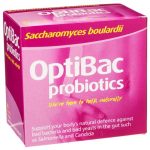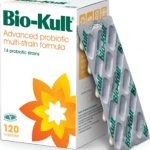We may all think we know what diarrhoea is, but do we? And do we know what causes it, what suffering from it could mean and how dangerous it actually could be?
Generally speaking, diarrhoea tends to refer to the frequent passing of stool that’s of a liquid consistency. Pretty much everybody at some stage is likely to suffer from it, ensuring it affects people of all ages – from children through to the elderly. In most cases, it tends to clear up in a few days and not prove a cause for concern; thus, this is what’s usually referred to as short-term or acute diarrhoea. It’s long-term or chronic diarrhoea then that people should be worried about; if it goes on for more than three weeks it’s more than likely to be symptomatic of a serious bowel function issue.
Diarrhoea causes
Diarrhoea can occur due to a number of different reasons – some more serious than others. Therefore, some cause the acute kind of diarrhoea; others the chronic version:
- Bacterial infections – usually ingested due to contaminated food or water, they include salmonella, Escherichia coli (E. coli), shigella and campylobacter
- Viral infections – diarrhoea’s often a symptom of the likes of hepatitis, rotavirus, Cytomegalovirus and Norwalk, as well as simplex and herpes viruses
- Food intolerances – lactose (milk and dairy-based food) intolerance is the obvious example here, but intolerances to food colouring and other additives are also common
- Parasites – can be ingested via food and often via water; they include Cryptosporidium, Entamoeba histolytica and Giardia lamblia
- Bowel conditions – irritable bowel syndrome (IBS) and Celiac disease often result in diarrhoea
- Medications – on occasions, the likes of antibiotics and antacids, as well as some blood pressure treatments can set off diarrhoea.
When does diarrhoea occur – and for whom?
As established, in most scenarios and for most people, diarrhoea tends to be symptomatic of something else and isn’t usually health-threatening in itself. But that’s not always the case. For the young and the elderly it can be potentially dangerous – and that’s because it’s directly connected with dehydration. Essentially, what happens when you experience diarrhoea is the body uses up a large amount of fluid, which the rest of the body needs to function effectively and correctly.
As children’s bodies are still developing and those of the elderly tend to be weaker and in more advanced decline compared to those in the prime of life and health, significant dehydration can be hazardous for these two age groups. Indeed, in children, diarrhoea (usually caused by rotavirus) commonly fades by its eighth day at most, but a parent’s nonetheless advised to seek medical advice after 24 hours – indeed, in new-borns it may even prove fatal if they’re not rehydrated quickly enough.
All that said, those of all ages ought to be wary of long-term symptoms, of course. If it’s gone on in excess of 72 hours, if it’s accompanied by severe abdominal and/ or rectal pain and if you have a fever (higher than 102°F), it would be a very good idea to see a doctor.
Food and travel advice
If you’re already suffering from diarrhoea:
- Avoid fibre-based, greasy and mostly sweet foods
- It’s probably best to cut out dairy products too
- If the diarrhoea symptoms are particularly strong, you may want to opt for fluids only, returning to soft foods (plain rice and bananas, for instance) in time
When traveling overseas, there’s a good chance you’ll find one or more foods simply don’t ‘agree’ with your digestive system. In this case, there’s not a lot you can do if you’re trying and experimenting with local cuisine. However, to try to prevent catching infections and viruses, you should try to:
- Avoid drinking tap water, don’t add it to tea and coffee and don’t use it to brush your teeth
- Avoid buying and consuming food from street vendors
- Drink bottled water but only if the bottle’s seal hasn’t been broken
- Only add pasteurised milk to hot drinks
Diarrhoea supplements
When you’re suffering from diarrhoea or if you’re someone who’s susceptible to suffering from it at all regularly, it’s natural to want to rely on – or at least try – something that helps alleviate the symptoms, or even prevent it developing in the first place. So, you may be interested in the following diarrhoea supplements and probiotics available via us at The Finchley Clinic:
Saccharomyches boulardii (formerly OptiBac Probiotics for bowel calm) – a globally renowned probiotic that naturally helps control bowel function during diarrhoea episodes and bring under control Candida and other fungal overgrowths.
BioKult – great for intestinal balance and integrity, but especially for sufferers of post-antibiotic diarrhoea, IBS, gut dysbiosis, Candida and ‘traveller’s tummy’; combines very well with and enhances Threelac.
OptiBac Probiotics for children & babies – an ideal blend of probiotics and prebiotics for women during pregnancy, babies and children; specifically containing acidophilus, Bifidobacterium infantis and bifidum.



